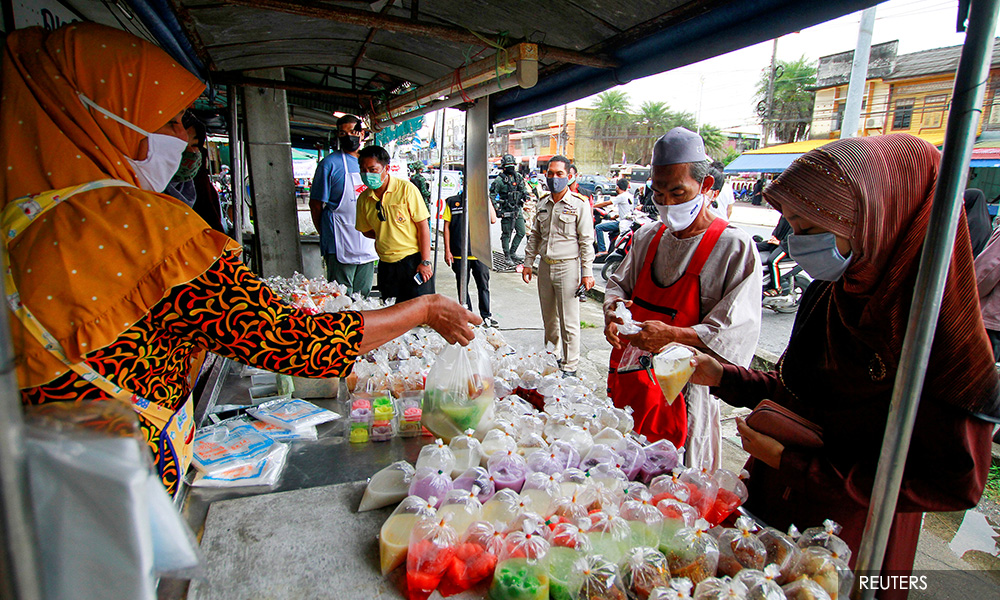
Published by Malaysiakini, images from Malaysiakini.
Since the outburst of Covid-19, everything has evolved. This includes consumer behaviour, in particular, how we spend.
According to a McKinsey survey on consumer behaviour in 41 countries, consumer sentiments vary across countries – confidence has fallen across the Americas and Europe whilst optimism levels in most Asian economies have maintained or have risen.
The major factor influencing consumers’ sentiment appears to be income loss. In Malaysia, the unemployment rate jumped to 3.9 percent in March, higher than 3.3 percent in February.
The number of employed persons dropped by 110,000 to 15.23 million in March, implying how much the movement control order (MCO) has affected the wage earners especially the self-employed (2.81 million).
With the change in income, comes a change in spending behaviour. As consumers have felt the economic impact, many have pulled back from discretionary and shifted to the necessities as well as “affordable luxuries”.
Malaysians have also opted for online shopping and increased their usage of e-wallets while staying at home and trying to outdoor activities.
In addition, data research firm Statista also reported that total transaction value for digital payments in our country would reach RM54 billion this year (RM46 billion in 2019) and it is projected to see an annual growth of 10.8 percent over the next three years.
Based on a Covid-19 survey by the Department of Statistics Malaysia (DOSM) before MCO and during MCO, a big portion of household spending has been concentrated on necessities namely food and non-alcoholic beverages, from 18 percent to 44 percent.
Going forward, this new spending habit would likely persist given that some employers have provided the option to continue working from home and the conditional MCO has been extended until June 9.
For instance, the CEO of Permodalan Nasional Berhad (PNB) Jalil Rasheed announced that work-from-home is now a permanent option for its employees, not only during the conditional MCO. The decision was based on the knowledge that digitalisation is the new way of life.

The self-employed such as small traders, hawkers and stall operators have not been given the permission to reopen and currently finding other means to operate.
So, how can retailers restructure themselves to adapt to the new life norm?
Good to know that some retailers, be it small or big, have made their way to online businesses through social media such as Instagram, Twitter and Facebook, since the MCO started.
Coming to one of the biggest festive months, Hari Raya Aidilfitri, it would usually be the busiest period for retailers, particularly those in fashion and F&B industries.
However, it is likely to be different this year as Malaysians would alter their spending habits in line with their personal finance status. Some might still be spending as usual but some might cut their expenditure only for certain things.
Since the start of the MCO, those who appear to have benefitted are the grocery retailers that include supermarkets, hypermarkets, mini-markets and convenience stores.
Restaurants have taken advantage of takeaway orders helped by companies providing delivery services such as Grab, Lalamove and Bungkusit.
Furthermore, e-commerce has also been booming with the acceleration of courier services.
It is obvious that the channel which has been driving retail sales since the pandemic is remote purchase or anything that is online-driven.
Looking into the fashion industry, it seems that several retailers have pursued new strategies in adjusting to new consumer spending patterns.
The owner of a fashion label known as ShoesShoesShoes, Ung Yiu Lin has encouraged businesses to be local, while fashion designer Alia Bastamam said brands would be more online-centric and virtual settings will be established for its customers.
Founder of a headscarf brand TudungPeople Fazrena Aziz noted that e-commerce has been more useful than ever and that it has forced many brick and mortar stores to shift online.
A similar situation applies to grocery retailers that are available online such as Tesco and Jaya Grocer. These big supermarkets have been experiencing overwhelming orders since the beginning of the MCO.
Tesco Stores (M) Sdn Bhd was reported as saying that it is considering to add over 600 new staff on the back of the spike in orders via Tesco online.
In a way, there is a “blessing in disguise” for these local retailers who are able to shift to Plan B despite the pandemic and MCO that have disrupted their businesses.
Nonetheless, a number of small and traditional businesses might not be as privileged to immediately shift to online platforms due to financial shortages, lack of knowledge, manpower and willingness.

Apart from Bank Negara Malaysia’s SME Automation and Digitalisation Facility of RM300 million, the allocation of RM20 million to Malaysian Digital Economy Corporation (MDEC) to transform Pusat Internet Desa to e-commerce hubs and RM1,000 grant to local entrepreneurs, a more targeted approach is needed to address the difficulties faced by vulnerable business owners in adapting to the new business style.
MDEC’s recent initiative in introducing SME Digital Quickwins deserves to be lauded as it is forward-looking. It focuses on facilitating the process of connecting technology solution providers and looking at the steps once the MCO is lifted.
As reported, the Selangor Information Technology and E-Commerce Council (Sitec) and MDEC would also be launching a digital centre this month, a move to support the SMEs in digitising businesses via consultation and provision of relevant information.
Perhaps, what can be done further is for the government or private sector to provide more allocation or business-friendly platforms for businesses to embrace technological advancement during and after the crisis.
As said by the CEO of TNG Digital Ignatius Ong, “Even when the MCO is lifted, the rakyat will remember this cashless habit that has become their new normal and continue to transact digitally.”
Hopefully, the Economic Recovery Plan that is due to be announced by the end of this month would give special attention to this matter and be inclusive of all.
Nur Sofea Hasmira Azahar is Research Analyst at EMIR Research, an independent think tank focused on strategic policy recommendations based on rigorous research.

